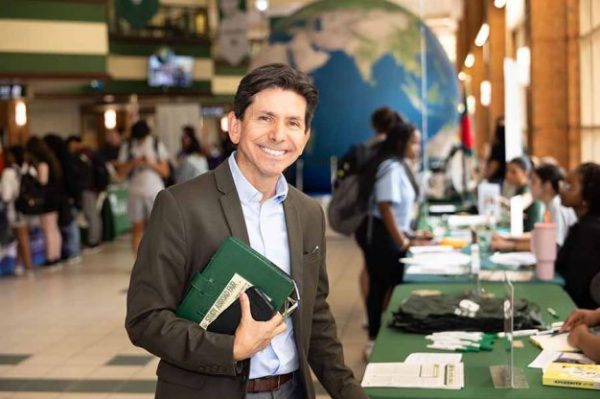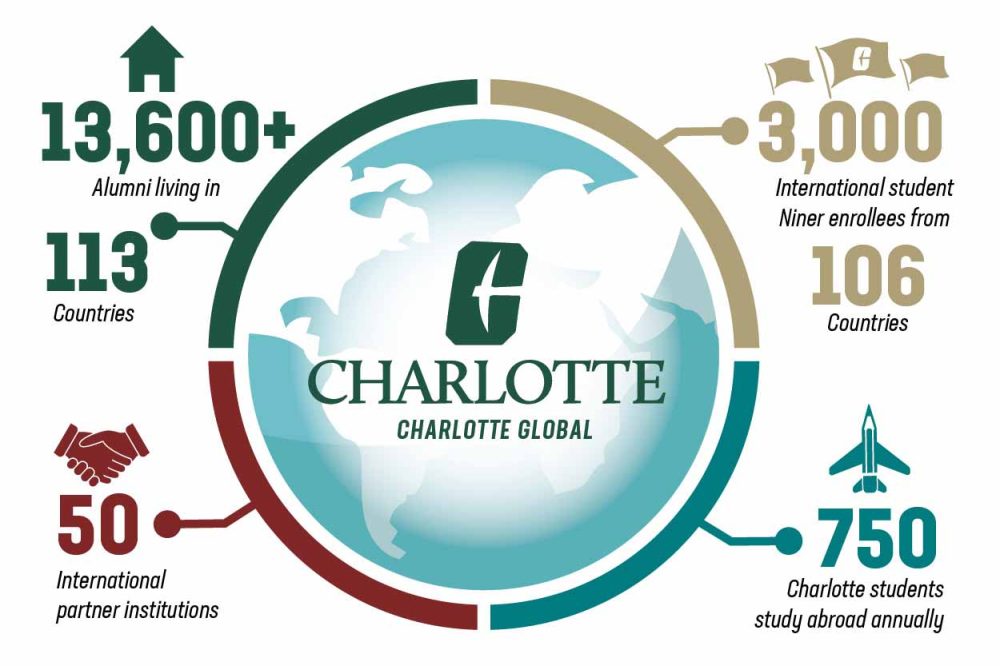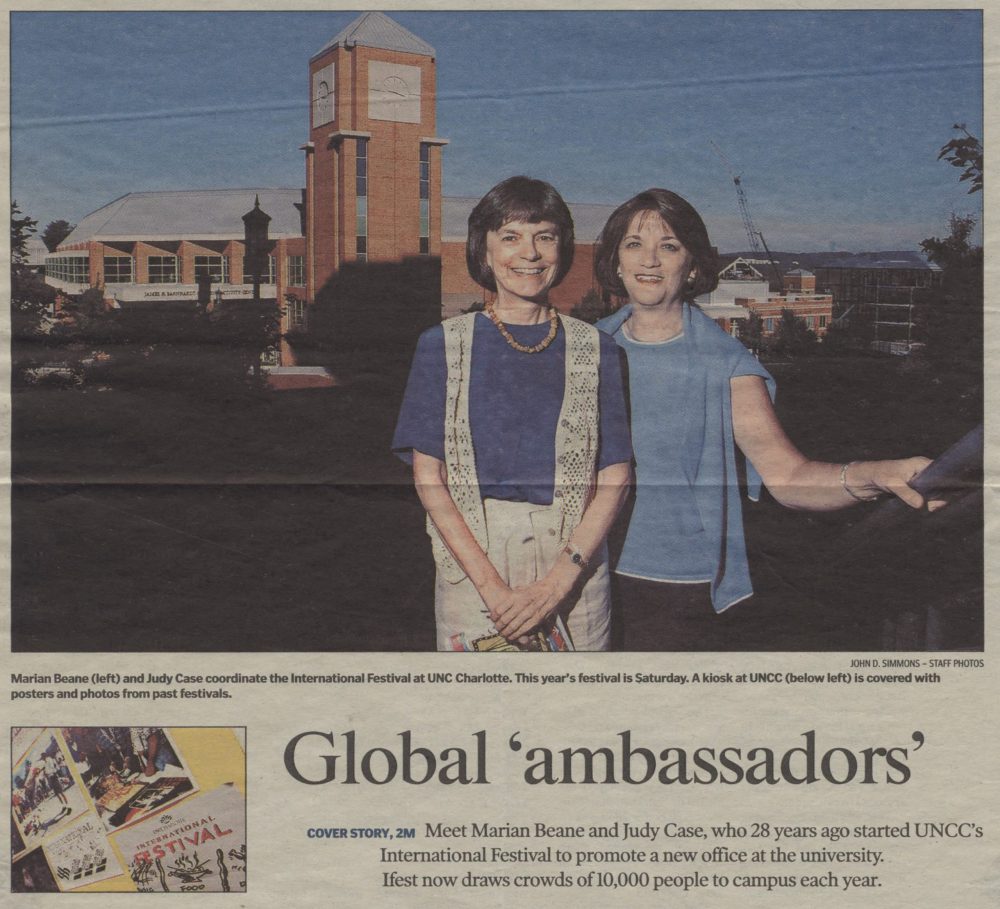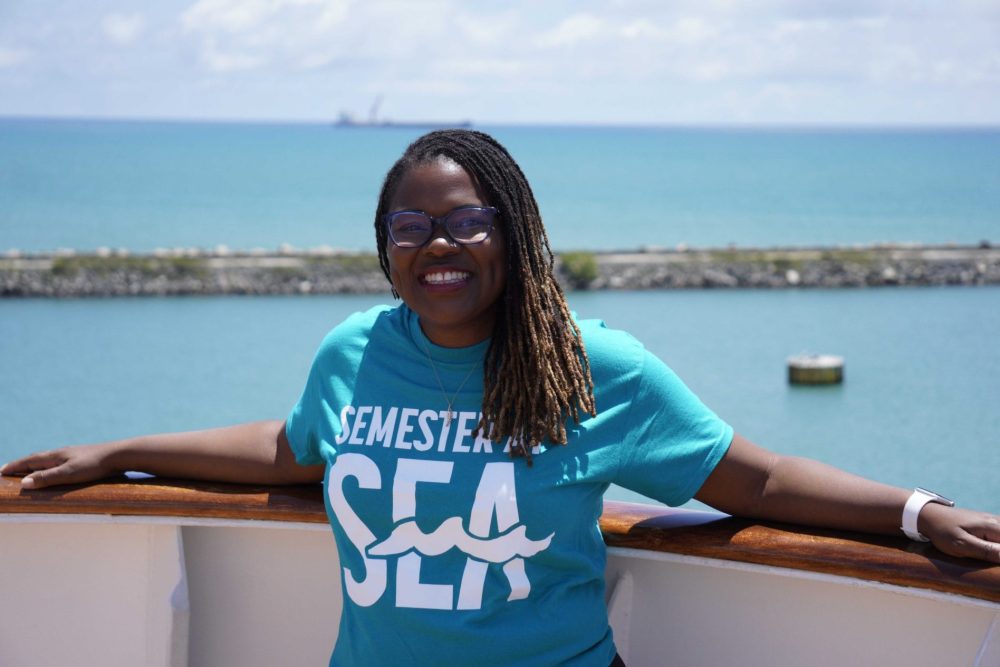Charlotte’s driving force for global citizenship, cultural learning

As UNC Charlotte’s Office of International Programs — the University’s champion for global learning — celebrates its 50th year by becoming Charlotte Global, students, alumni and the community enthusiastically embrace connections to broad cultural learning and life opportunities.
“Charlotte Global proudly reflects on five decades of advancing international education through a comprehensive and impactful program portfolio. As we look ahead, our commitment remains steadfast: to deliver dynamic, forward-thinking initiatives that meet the evolving needs of our campus community. As the city of Charlotte is increasingly connected to the world, our campus must be equally prepared to empower students for success in a global workforce. Charlotte Global is excited to lead the next chapter of international and global engagement,” said Joël Gallegos, associate provost for international programs, who has led the office since 2005. He also serves as honorary consul of France to Central and Western North Carolina.
Coordinating study abroad opportunities is just the tip of the Charlotte Global iceberg. A centralized campus hub for cultural exchange and international learning, the department’s team members regard themselves as ambassadors to the Queen City’s global community. They pave the way for inviting international scholars to campus, managing Fulbright opportunities for faculty, operating one of the largest English Language Training Institutes in the Carolinas, coordinating the Great Decisions lecture series and other intercultural learnings and organizing one of UNC Charlotte’s longest-running annual campus events, International Festival.

International Festival: A continuing legacy of community globalization
In the mid-1970s the city of Charlotte was home to roughly 300,000 people; University enrollment totaled 7,750 with fewer than 300 international students. W. T. Harris Boulevard, connecting I-85 to N.C. 49, was just completed, and University Research Park opened, providing a catalyst for economic development for what is now University City.
Marian Beane and Judy Case, both now retired, helped organize the inaugural festival in fall 1975. University leaders had established the Center for International Studies, later the Office of International Programs, now Charlotte Global, under the direction of former faculty member Earl Backman.
“Our goal was to increase awareness of the international programs on campus and provide our international students an opportunity to showcase their cultures,” said Beane. “Also, we wanted to entice the community to campus, which was more rural in those days.”

UNC Charlotte’s one-stop office to serve its burgeoning international student population became a valuable community resource. Case recalled, “We developed cross-cultural training programs and international business programs for campus and community members. Our office coordinated faculty and student exchanges, the Great Decisions lecture series, the English Language Training Institute, among other initiatives.”
Study abroad prompts an international career
Alicia Wallace Jones ‘03 experienced her first International Festival as a student in fall 2000. She couldn’t know at the time it would spark a 20-plus year career in global education that has spanned the University of Maryland, Duke University, Arcadia University and Eckerd College.

“I remember being at the Japanese table, surrounded by booths representing so many countries,” Jones said. “At any other institution where I’ve worked, I’ve never witnessed anything close to it. The way the greater Charlotte community supports the festival says a lot about OIP and its relationships on and off campus.”
Currently with Semester at Sea as a faculty-led programs coordinator for the Institute for Shipboard Education, Jones aligns port experiences for 461 students that enhance the learning goals of the organization’s 35 faculty members teaching 76 courses. Instructors choose up to three ports to consider when scheduling engaged, immersive and culturally relevant educational opportunities. For the 105-day voyage underway, the ship will travel to 11 countries, stopping at 12 cities on three continents. Jones and her colleagues must balance field experiences for students at each port, and she manages any logistical challenges and risk management issues.
“Working for Semester at Sea is rewarding and challenging. It’s four months of your life; when the ship sets sail, we are working virtually all the time,” she said.
Living globally at Charlotte
Exposure to “all things international” began early for Jones, who participated in middle and high school International Baccalaureate programs through Charlotte-Mecklenburg Schools.
“I knew I wanted to study abroad in college, and I thought it would be easy at any university,” she said. At Florida A&M University, Jones realized the support for fulfilling her study abroad goal wasn’t in place and left after one semester. After transferring to UNC Charlotte in spring 2000, she discovered her community. “My first roommate was having a great experience taking Japanese, and I knew I wanted to learn, too. After high school, I sought to leave Charlotte. I had never visited UNC Charlotte’s campus, but then, when I started, I said, ‘Wow, all this was right down the street.’”
Exploring study abroad options during her first semester, she eventually chose two — a summer program in Costa Rica and an academic year in Japan.
Alicia Jones ’03
“There are limitations to learning about other cultures in the classroom, which, for me, confirmed the value of studying abroad.”
Immersed in culture
During both exchanges, Jones lived with host families arranged through the Office of International Programs. At J.F. Oberlin University, a Charlotte international partner, Jones benefited from the familial structure that supports Japan’s ritualistic, hierarchical social structure.
“There are limitations to learning about other cultures in the classroom, which, for me, confirmed the value of studying abroad,” Jones said. “Not only did my language skills improve, but by living with families, it was easier to see, adapt to and adopt their cultures. I began to recognize how unspoken rules and behaviors shape Japanese societies, and I grew to appreciate the differences.
Life-changing opportunities
Majoring in international studies, Jones interned with the Office of International Programs as a peer mentor and recruited fellow Niners to study abroad. She knew firsthand the impact of international education and why it is integral to campus life.
“I realized how much I enjoyed talking about the benefits of study abroad and assisting other students to undertake similar paths,” she said.
She even encouraged her future husband, who was an undergrad at the time at Winston-Salem State University, to complete a Semester at Sea trip. The couple now lives in Tampa, Florida, and has three children, two are participating in this fall’s voyage.
Jones credits Charlotte with launching her career in global education, adding she remains in contact with OIP staff.
“They are my biggest cheerleaders,” she said. “Joël Gallegos was a mentor and has become my longtime friend. Throughout my career, if I had questions, I knew UNC Charlotte was a place I could turn for help.”
Supporting the Queen City’s world-class rise
In September, Chancellor Sharon L. Gaber received the World Citizen Award from the World Affairs Council of Charlotte. This honor recognizes citizens and organizations that have enhanced the Charlotte community’s standing in the world.
In 1983, the Office of International Programs founded the World Affairs Council of Charlotte as a community outreach initiative. Since 1999, WACC has been a nonprofit, nonpartisan organization; it serves as a regional center for education and discussion of world affairs and is the largest in the Carolinas.
L.J. Stambuk, president and CEO of the World Affairs Council, said, “UNC Charlotte’s Office of International Programs’ steadfast commitment to global education has elevated the Queen City’s profile as a destination for innovation, research and international collaboration. By preparing globally minded students and fostering cross-cultural connections, the University continues to strengthen Charlotte’s standing as a world-class city with global reach and influence.”